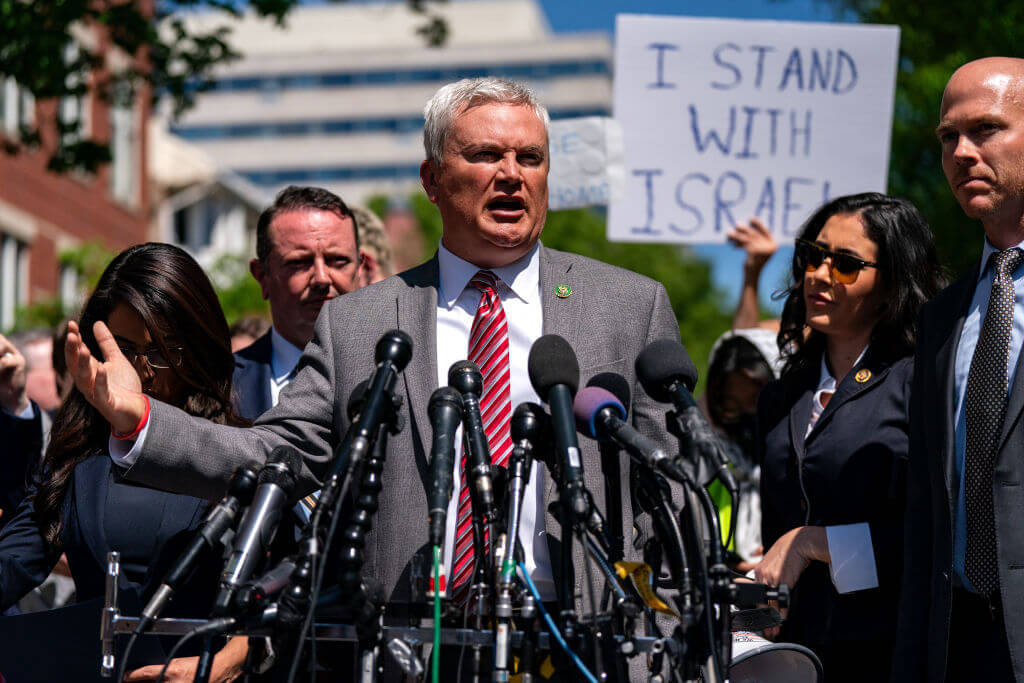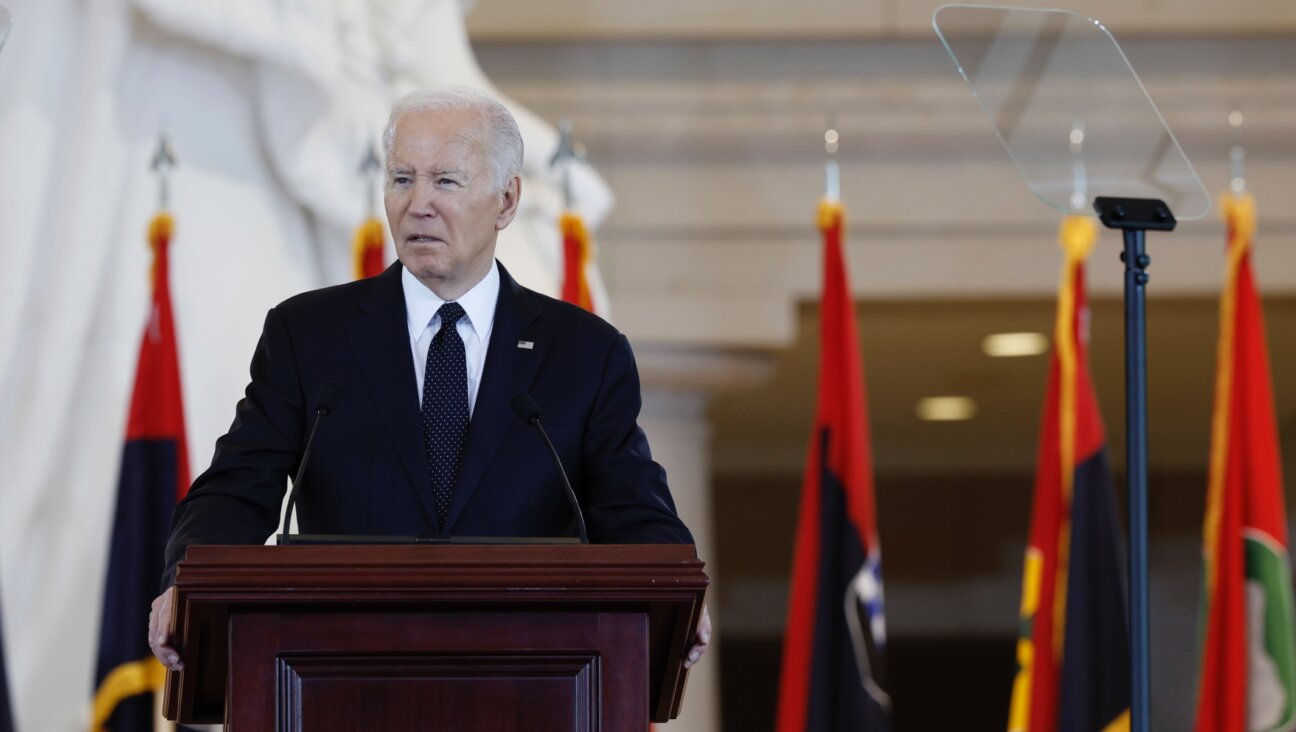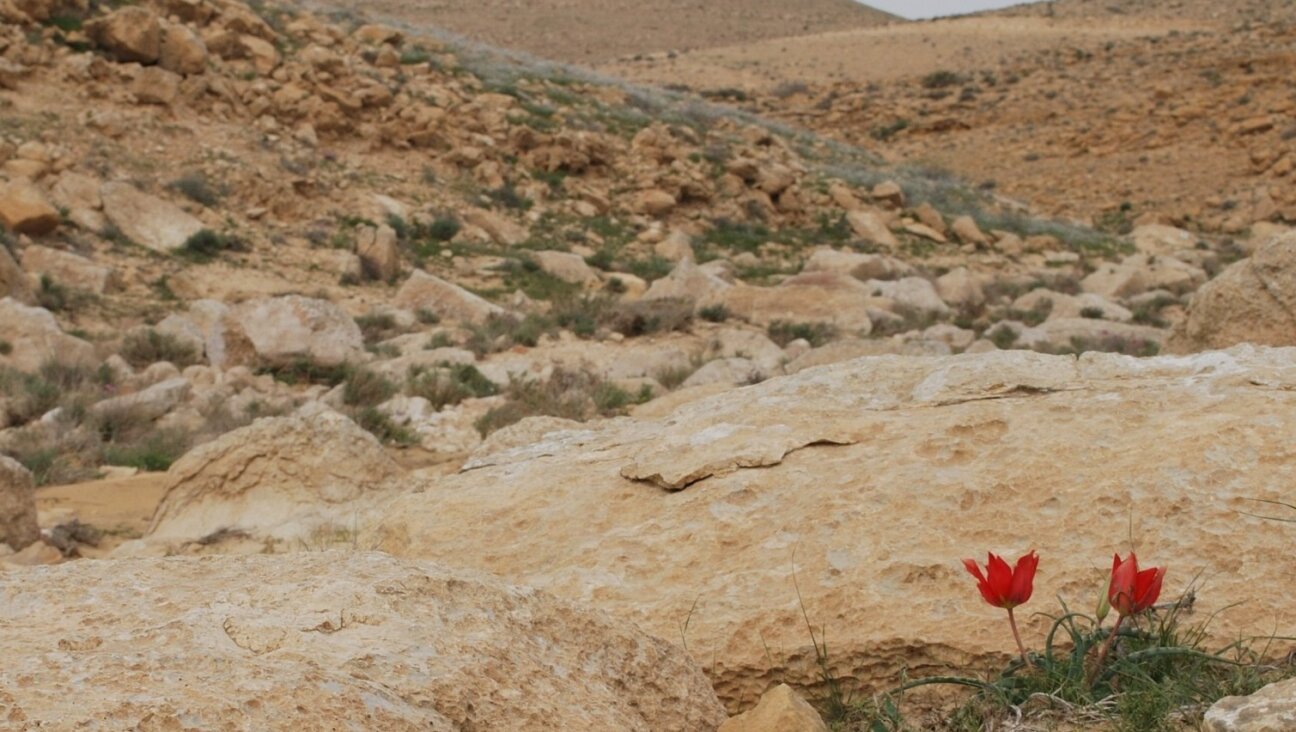Trump Peace Envoy: Hamas Uses Gaza Protests ‘As Cover To Attack Israeli Troops’

Jason Greenblatt Image by Courtesy of InspireConversation.com
NEW YORK (JTA) — Jason Greenblatt, President Trump’s chief Middle East negotiator, said Hamas uses protests at Israel’s border with Gaza to attack the Jewish state.
“Hamas and other terrorist groups have spent their energy and resources encouraging Palestinians in Gaza to stage protests and throw rocks and Molotov cocktails at the border fence,” Greenblatt said Tuesday here in a speech at the American Jewish Committee’s women’s leadership board spring luncheon. “In some cases Hamas use the protests as cover to attack Israeli troops and plant bombs along the border fence.”
Greenblatt did not speak about the Israeli army’s actions in response to the protests in recent weeks; the international community has condemned the response. Thirty-nine Palestinians, including a journalist, have been killed by Israeli fire and hundreds wounded amid the protests, according to Haaretz. The demonstrations preceded a call by Hamas officials for protests against Israel and are calling for the return of Palestinian land.
At the event Greenblatt, a longtime lawyer to Trump, said some “good news” in the region includes opportunities for Israel to forge better ties with other Arab countries.
Egypt, Jordan, Saudi Arabia and the United Arab Emirates “increasingly look to Israel as a security and economic partner. These ties can serve as a model for future collaboration that benefit all and lead to closer regional ties,” Greenblatt said.
Greenblatt praised the president for recognizing Jerusalem as Israel’s capital and said that ties between Israel and the United States are more robust than ever.
He also shared stories of meeting with Israelis and Arabs of different backgrounds, including comforting families who lost relatives in terror attacks and hosting five young Palestinians for a Shabbat dinner with his family in Jerusalem.
“These experiences have shown me that so many of us share the same hopes, dreams and aspirations,” he said.

I hope you appreciated this article. Before you go, I’d like to ask you to please support the Forward’s award-winning, nonprofit journalism during this critical time.
Now more than ever, American Jews need independent news they can trust, with reporting driven by truth, not ideology. We serve you, not any ideological agenda.
At a time when other newsrooms are closing or cutting back, the Forward has removed its paywall and invested additional resources to report on the ground from Israel and around the U.S. on the impact of the war, rising antisemitism and the protests on college campuses.
Readers like you make it all possible. Support our work by becoming a Forward Member and connect with our journalism and your community.
Make a gift of any size and become a Forward member today. You’ll support our mission to tell the American Jewish story fully and fairly.
— Rachel Fishman Feddersen, Publisher and CEO
Join our mission to tell the Jewish story fully and fairly.























